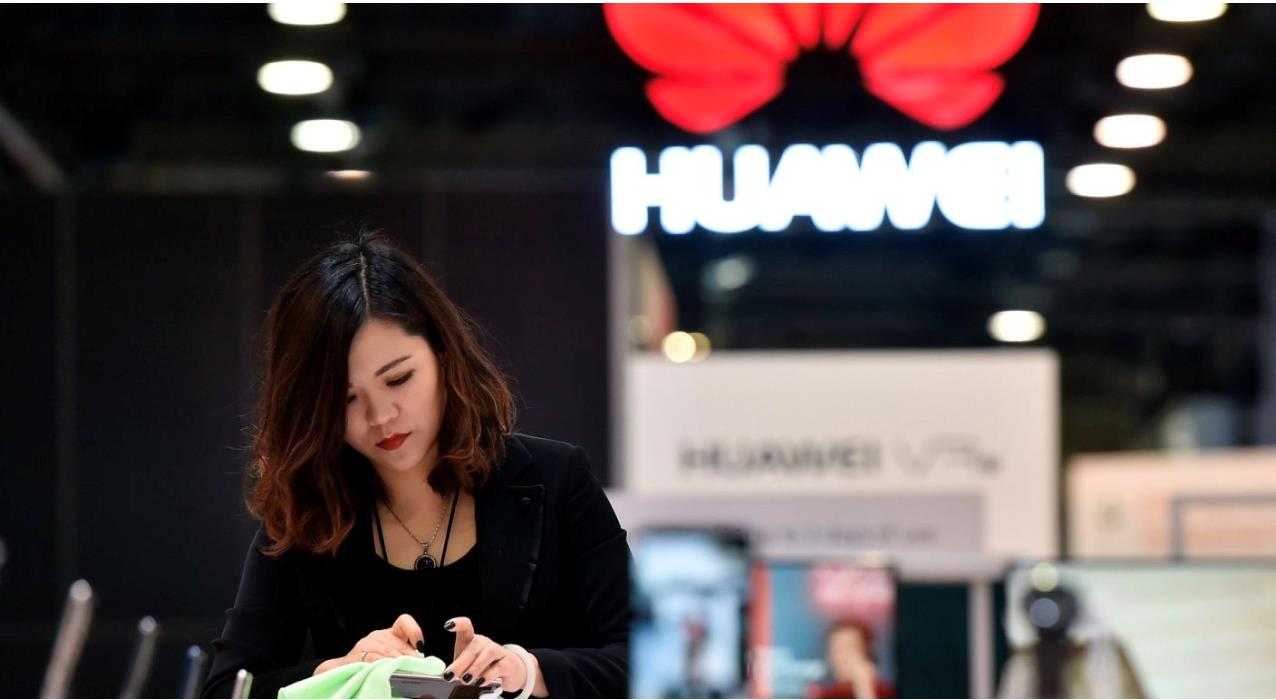(MENAFN- Asia Times)
JAKARTA – Chinese tech giants Huawei and ZTE may have carved out a dominant role for themselves in the sprawling Indonesian Telecom market but industry players seriously doubt claims that the Jakarta government has allowed itself to be compromised in the field of cybersecurity.
A lengthy paper prepared by researchers at the Carnegie Endowment for International Peace says that despite general public distrust in China, the two companies“have successfully positioned themselves as trusted cybersecurity advisers to the Indonesian government.”
“Many Chinese companies have faced protests over concerns they were taking local jobs,” it says.“Huawei and (to a lesser extent) ZTE have suffered no such fate. Nor has there been a broad coalition of Indonesian voices against using Chinese technology in critical telecommunications infrastructure.”
In an interview with the researchers, one senior Indonesian official was quoted as complaining:“If we're constantly afraid, our development will stagnate.”
Comparing it to growing Western scrutiny over the use of Chinese technology in broadband networks, the paper claims the two companies have been able to achieve success in Indonesia without raising alarm in the political and defense establishment about Chinese intentions.
According to one private research report, top-ranked Huawei has 31.7% of Indonesia's telecom carrier equipment market, with Nokia placing second at 14%.
But the Chinese tech giant has gone beyond the simple sale of equipment, including with the country's 5G rollout. Huawei has also embarked on a major capacity-building effort to address a lack of cybersecurity talent and up-to-date technology.
“The biggest cybersecurity risk from Indonesia's perspective is that its online environment is not competitive enough to create sufficient jobs or that the cybersecurity environment is too insecure for average Indonesians to trust it,” the authors say.
“There remains a recognition of China's malign cyber activities, but the associated risks do not rate compared to a range of other much more pressing security challenges,” they go on, pointing to a Lowy Institute poll which lists internal unrest, Covid-19, terrorism and food shortages as just some of the greater perceived threats.

Women use their smartphones at a cafe in Jakarta. Photo: AFP / Bay Ismoyo
All the same, a 2008 Defense White Paper was the first to recognize Indonesia's cybersecurity vulnerabilities as its susceptibility to cybercrimes was growing along with the rapidly expanding size of its internet and mobile phone base, which is now nearing 200 million users.
The study argued that cyber and technological dependence may not only turn Indonesia into a booming market for foreign products but also make it difficult to manage“potential technological threats perpetrated by certain actors to weaken Indonesia.”
Cheaper prices have given Huawei a significant edge over its competition but that is only part of the story. The paper notes the firm has also been offering“enormous” cybersecurity and other related training programs for groups ranging from senior government officials to students in rural Indonesia.
Just how large is a matter of conjecture, however. Industry sources question Huawei's claim that 100,000 workers can be trained within five years.“That is a total exaggeration,” says one.“But there's no doubt they (the Chinese) are a threat, as their behavior in other countries has shown.”
While Western tech companies are only compelled to share their data with law enforcement agencies – and then as it pertains to purely domestic interests – those in China have no choice but to provide information to the government on a global scale.
The Carnegie paper says reliance on Chinese tech could end up aligning the political interests of countries like Indonesia with those of China.“Other key worries are China's pervasive espionage and the enduring (though as yet unrealized) risk that Chinese companies with a dominant role in an ICT ecosystem could be used by Beijing to apply coercive political pressure,” it says.
Indonesia has one of the fastest-growing telecommunications sectors in the world, with one report estimating the gross merchandise value of Indonesia's e-commerce sector at US$32 billion and the government expecting the wider digital economy to reach $146 billion by 2025.
That, in itself, has increased the need for more efficient data storage. There are now more than 30 data centers in Jakarta, enough to suggest a looming glut though one industry source says only a handful are considered to be first class.
Among them are three centers recently installed by Amazon at a cost of nearly $1 billion. Microsoft and state-owned PT Telkom Indonesia are collaborating on planned cloud-based services and IBM is building a center in Karawang, east of Jakarta.
The Indonesian government has made it clear it wants to construct its own national data centers for its ministries and agencies without any foreign involvement – apart from financing, with South Korea already agreeing to provide a $100 million loan for one start-up.
“There is a serious distrust of foreign cloud providers, but I don't know how much of that stems from safety concerns or how much of it is simply the desire to have control,” says one senior foreign tech executive with an intimate knowledge of the market.
The Communications Ministry is planning national data centers in Jakarta, Batam – an island south of Singapore – Flores in the West Nusa Tenggara island chain and East Kalimantan where the Widodo administration intends to build a new $32 billion national capital.
Communications Minister Johnny Plate says because data is“strategic,” it requires better management and infrastructure as consumption climbs from the current one watt to 10 watts per capita, creating an increased electricity demand of 2,700 megawatts.

Huawei is helping Indonesia with its 5G rollout. Image: Twitter
The Indonesians will be well aware of the mass customer migration that took place when property investors Reuben Brothers sold a controlling $7.7 billion stake in Global Switch, a Sydney-based data center, to Chinese steel maker Jiangsu Shagang in 2017.
Australian government agencies were given two years to move out of Global Switch, a deadline that had to be extended to July 2022. It was an expensive undertaking because of contract-breaking charges and the cost of duplicating infrastructure.
The Australian Tax Office was forced to spend $45 million to migrate to Australian-owned Canberra Data Centers. The Defense Ministry removed classified data almost immediately but took much longer to make the $151 million move.
Home Affairs and Foreign Affairs and Trade and the Australian Securities and Investments Commission all followed suit. Even Amazon, which used Global Switch when it entered the Australian market in 2017, also had to migrate elsewhere at a significant cost to ensure it continued doing business with the government.
Experts say Huawei's circuitry is well-known and, as a consequence, there is little need or incentive for the company to engineer“backdoors” into their equipment, giving the company – and Chinese intelligence – the capacity to access sensitive information.
The real worry for the United States and other Western countries is that China could duplicate the malicious computer worm, known as Stuxnet, the US used to infiltrate Iran's nuclear program, effectively destroying the gas centrifuges for separating nuclear material and use it against targets in the West.
MENAFN01082022000159011032ID1104624384
Legal Disclaimer:
MENAFN provides the information “as is” without warranty of any kind. We do not accept any responsibility or liability for the accuracy, content, images, videos, licenses, completeness, legality, or reliability of the information contained in this article. If you have any complaints or copyright issues related to this article, kindly contact the provider above.